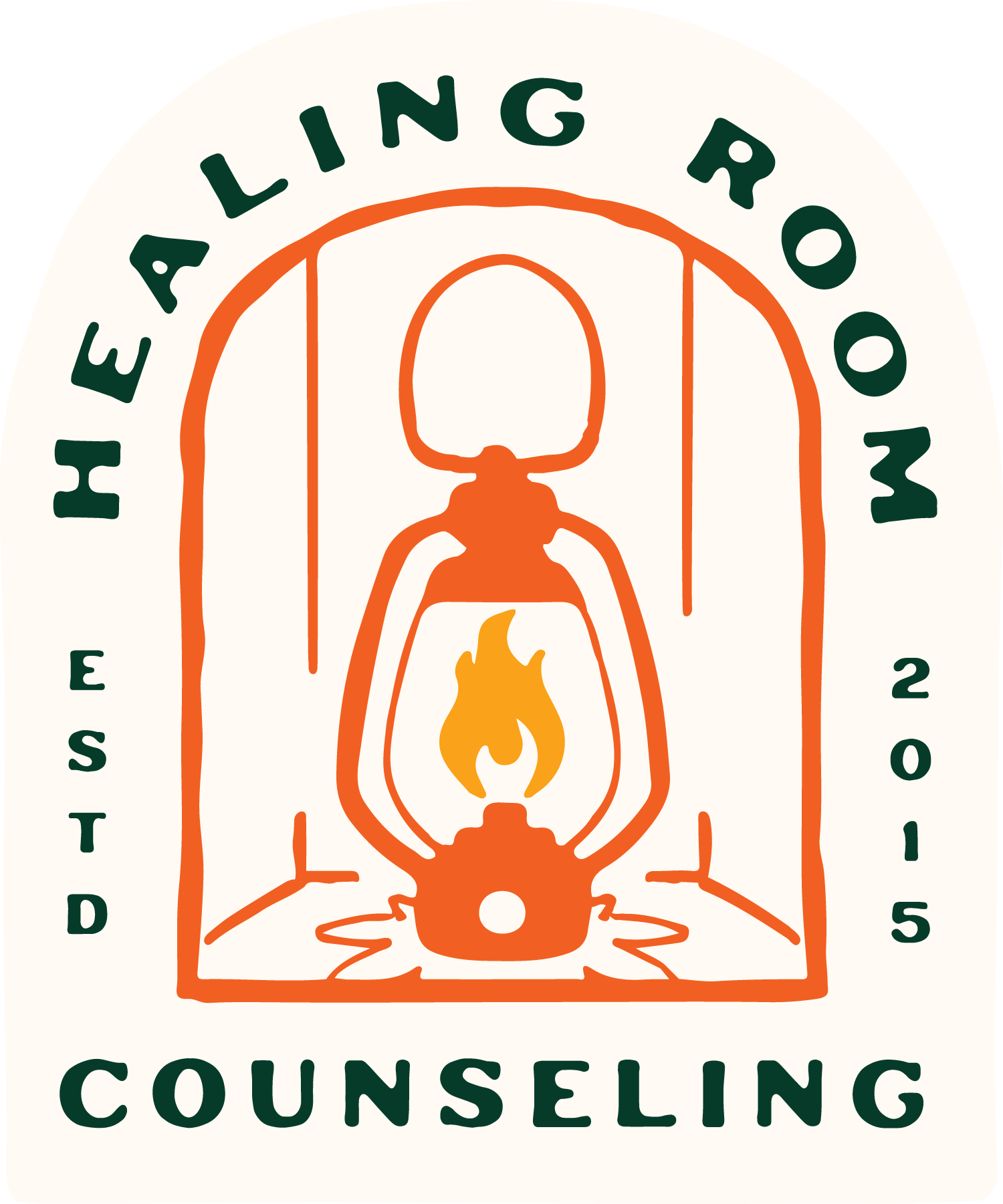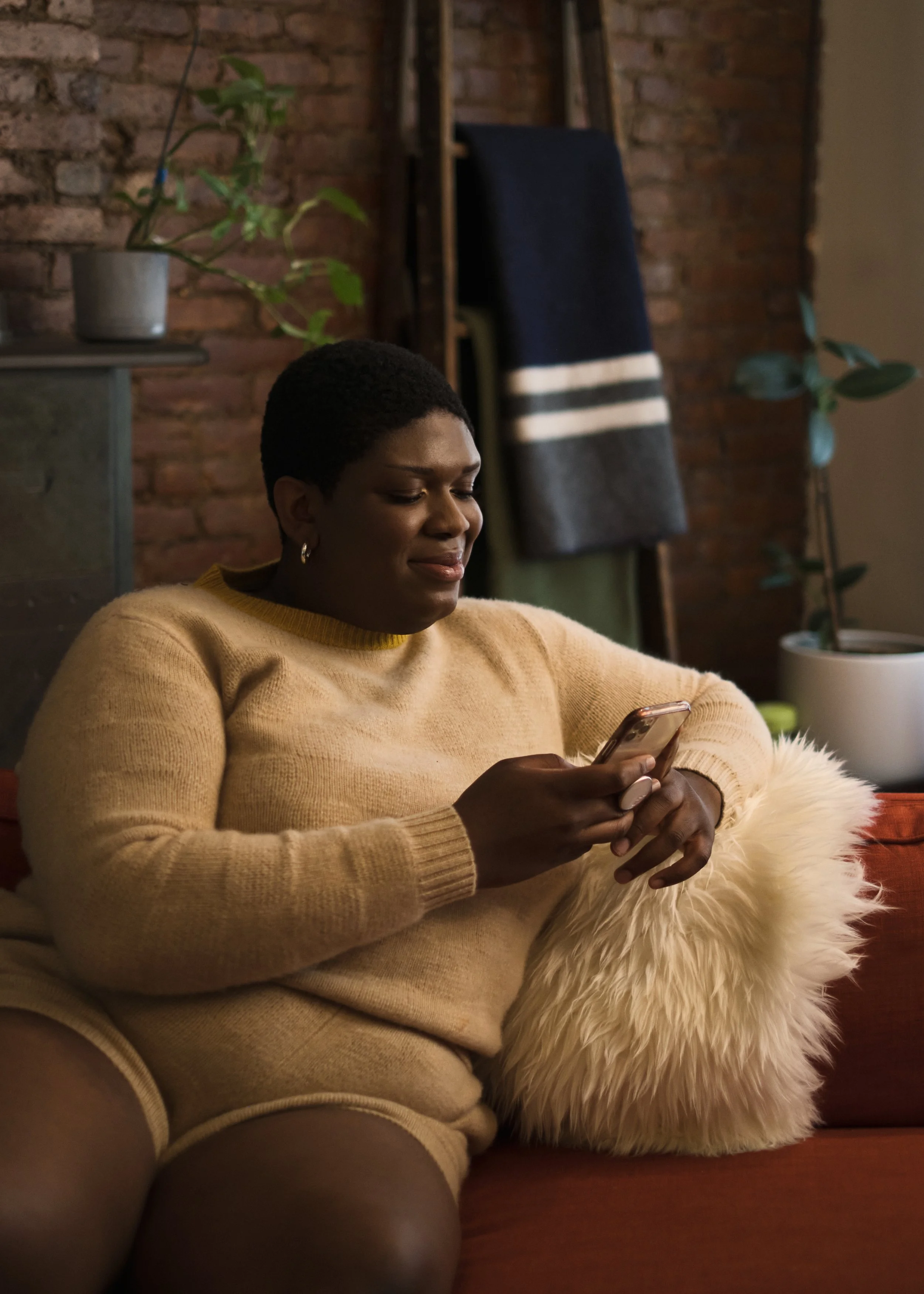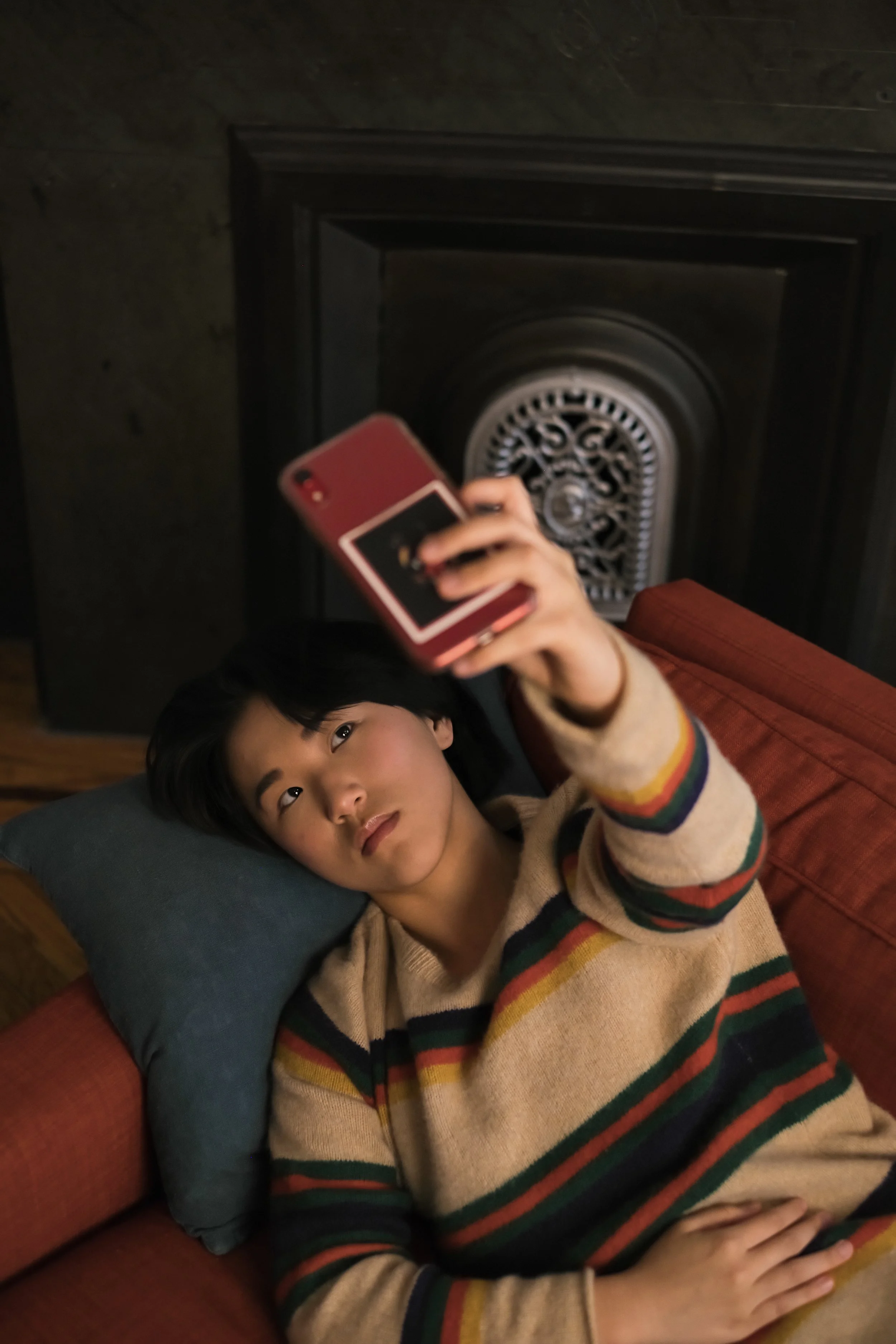Why Virtual Therapy?
All sessions at Healing Room Counseling are virtual.
Healing Room Counseling was an early adopter of virtual sessions. In 2016, I realized trans clients from rural Georgia were spending more money on Uber rides to my office than they were on the cost of an appointment with me. Bluntly stated, that felt cruel and unjust. Liberatory mental health cannot operate like that.
Since 2016 I’ve had great success with the online therapy model. Since 2020, telehealth has gained broader appeal with both clinicians and clients.
I also offer a sliding scale to a fair number of clients and the lower overhead helps me continue to do so.
Many of us have benefitted from virtual health appointments since the COVID-19 crisis began in March 2020.
Still, it’s common to wonder what Online therapy will be like:
Could it still feel cozy?
Will I feel cared for over a screen?
Can I trust the session is confidential?
If you are concerned about the virtual format, that’s okay!
Let’s talk about it.
Here is some information you may also find helpful.
-
According to research, telehealth is a safe, reliable, and effective modality for therapy. Research has shown similar positive outcomes for therapy online and in-person.
-
We’ve likely all experienced superficial connection over social media, but online therapy is not at all like social media. Research has shown most people who try online therapy are highly satisfied. In my own experience as a clinician and as a client, online therapy is a powerful modality for meaningful connection and change.
-
On my end, I conduct my session from an office that is completely confidential. I am usually in my home office where, other than my lounging cat, there are no other creatures. On your end, it may take some planning to set up a confidential space. Most of my clients have a home office or, if they live with others, arrange for a room in the house to be completely theirs during our session. Sometimes the only private space a client can find is in their parked car. That’s great too! A lovely spot in your car near a tree can be a great place for therapy. If you aren’t sure how to find privacy for a session, let’s talk it out.
-
Such a great question! While some interruptions like your cat or dog wanting in or out of the room are hard to avoid, other distractions can be minimized. For example, prior to session I close all of the tabs on my browser other than our therapy tabs and I suggest clients do the same. Silencing your phone or leaving it in another room may also be helpful. Gathering paper, a pen, and a beverage can also be helpful to setting the intention of the space and time for therapy. Finally, if you find yourself distracted during therapy this is actually great information to talk about in session. Perhaps there are certain topics that are challenging and the phone is an alluring distraction. That is an excellent topic for a session!
-
I use a HIPAA secure, private platform for all of my sessions. You don’t have to worry about the video platform. You do need a reliable internet connection and a computer. A cell phone will also work just fine.
-
It happens sometimes! No big deal. If we can’t establish a reliable connection, I will call you on the phone and we will pick up right where we left off.
-
Yes! Although I have a preference for video sessions, we can also do phone sessions. I would like to meet at least once over video, however, before utilizing phone sessions. Legally I need to be able to verify who you are and it’s nice to meet each other at least once visually.
-
Even prior to the health crisis of March 2020, I was seeing my own therapist online. Why? I loathe Atlanta traffic and her office was at least 45 minutes away from my home on a good day. If I were to commute to her, then a one hour therapy session would require three hours of my day. Frankly, that will not work for me. I have experienced the benefits of online therapy myself and I am motivated to extend those benefits to my clients. As a therapist, I have also seen enormous advantages to sessions where my client is meeting with me from their home. Many of my clients struggle to leave the house due to physical and/or psychological challenges. Online therapy, then, increases access. There are also many times when a client wants to show me something relevant to our sessions that they’ve been working on in their home, such as a craft or a home improvement project. The online model makes it easier for this kind of sharing. Finally, sessions where the client is at home gives us a unique opportunity to build resources within the home space. For example, if a client and I are working on grounding exercises a tree outside of their own window can become a site that is used in session and then the same tree is available to them between our sessions as well.






